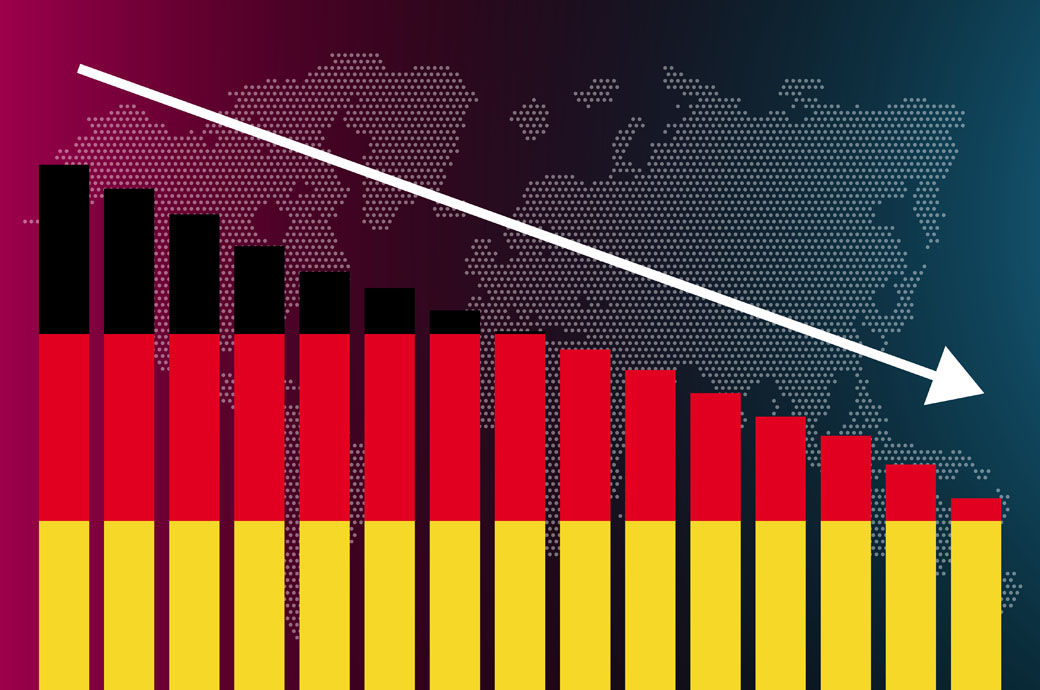
"Too little investment, too much bureaucracy, and excessively high location costs—the German economy is stuck. It's losing ground in Europe and internationally," noted Wansleben.
Wansleben referred to the recent forecast by the International Monetary Fund, which ranks Germany 39th in growth among 41 advanced economies.
The figures from the survey, with responses from around 25,000 companies across all sectors and regions in Germany, do not offer reasons for optimism in 2025, he stated.
"On the contrary, in some cases, feedback from companies raises concerns that things could get worse. For 2024, we're lowering our forecast to at best ‘zero growth'. For the coming year, we only expect zero growth as well. This would be the third consecutive year without real GDP growth!" he was quoted as saying in a DIHK release.
The poor expectations from early summer have now "materialised as business realities," Wansleben said.
"They are not brightened by hopes for improvements in economic conditions or any decisive economic policy actions, like medium- to long-term energy price reductions or rising incomes. We're seriously concerned about how Germany has become a drag on Europe's economy, unable to fulfill its role as an economic powerhouse," he noted.
"We are witnessing a solid structural crisis. High costs for energy and personnel, excessive bureaucracy, and tax burdens are now compounded by geopolitical uncertainties and a decline in domestic and foreign demand," Wansleben said.
According to the survey, only 26 per cent of companies (down from 28 per cent in early summer) rate their current business situation as ‘good’. Almost as many rate it ‘bad’ (25 per cent compared to 23 per cent earlier).
The situation is worst in the industry, where optimists are now a minority. Only 19 per cent of companies rate their current situation as ‘good’, while 35 per cent describe it as ‘bad’.
"We last saw such a situation 20 years ago, during the severe crisis in 2002 and 2003. This is a clear alarm signal," warned Wansleben. "At that time, the government sought to address the crisis with the Agenda 2010 reforms. We need deep reforms now as well," he said.
The business outlook for the coming months offers little hope for improvement. The share of companies with negative expectations has significantly increased: 31 per cent foresee worse business conditions (up from 26 per cent earlier), while only 13 per cent expect improvements (down from 16 per cent earlier).
"For companies, there is no light on the horizon," said Wansleben.
"The recent ECB rate cut could be a glimmer of hope, though we don't see it reflected in our numbers yet," he added.
Fixed asset investment remains well below pre-COVID levels, with no signs of improvement. On the contrary, a third of companies plan to cut back investment at their domestic locations, rising to 40 per cent in industry.
There is no widespread downsizing yet, but the era of falling or stable unemployment rates has come to an end. A quarter of all companies plan to reduce staff, while only about a tenth expect to hire more.
Once again, companies were asked to identify their main risks. Beyond geopolitical tensions and crises, businesses are concerned about Germany's location conditions.
Over half of respondents rate uncertain economic policy (57 per cent), labour costs (54 per cent) and labour shortages (51 per cent) as pressing business risks. Energy and raw material prices remain a concern for nearly half (49 per cent), despite recent decreases.
Deteriorating location conditions are eroding the international competitiveness of German companies. Germany risks losing ground in global markets.
Despite robust global growth, the export industry doesn't expect improvements over the next 12 months: only one in five companies anticipates an increase in exports, while nearly a third expects a decline.
The link between solid global economic growth and the resulting boost for German export businesses, which in turn supports Germany's economy, is weakening.
Fibre2Fashion News Desk (DS)